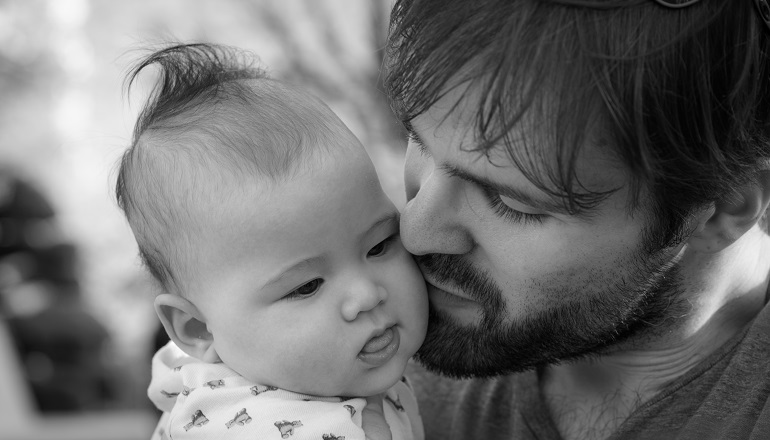Some time ago, my friends adopted a baby and set about the business of getting to know him. I watched from a distance of many miles and from a perspective of many parenting years. I saw them become familiar with their son, become family in the slow way that other people become friends.
The boy had come from another continent at 6 months of age. He traveled here out of his own brief history on their passport, and they seemed to regard him from the very start as both their baby and his own person.
The boy woke up slowly in the morning, happy with some time alone. Then, on some internal cue, he started a small lament that would, if untended, turn into a loud, raucous cry of need. He had a greed for breakfast, a taste for apricots, a temperament that was cheerful and careful.
Over the months, I saw them taking cues from this little boy. People who were, in their own lives, curious and impatient, were, in their son’s life, curious and patient.
The father was a man who had, in youth, jumped onto racing bikes and out of planes. The boy approached a new tricycle as if he had to memorize the driver’s manual before he stepped on the pedals. The mother was a woman who tore apart the pieces of a broken toaster and reassembled them, usually from memory. The son was one of those children who studied his toys before he played with them.
They noted these differences with amusement rather than surprise. And let the boy set his own pace.
The point—at least to me—was that their parenting had come without a full genetic set of assumptions. This son was no more different from his parents than many biological children. But they were different.
They didn’t assume that their own strengths and weaknesses had traveled along the DNA to their offspring. They didn’t assume that he had inherited his mother’s nearsightedness or musical talent, his father’s straight teeth or short attention span.
They didn’t look for proof that he was just like them or Aunt Emily or Grandpa Bill. So they set out to know him as himself. And in the process let him be himself.
I have been a parent for over two decades. A biological mother, a child-raising mother, an adult child’s mother … the works. And it seems to me that my friends started out in the parenting business one step ahead of the rest of us.
Those of us who give our genes as well as our love to children, set out to reproduce … ourselves. We deliver unconscious expectations in the birthing room. We think we know them. Because they are “ours.”
In their early years, we often assume that they’ll be as much like us in interests, mind sets, hopes, dreams, whatever, as they are in biology.
The absolute cliché of parenting is surprise. It’s the tennis coach’s surprise to find that his son prefers to read. The down-to-earth parents’ surprise at the fanciful inner life of the child.
Parents say “I don’t know where she gets it from.” We say, if only to ourselves, that nobody in our family ever played rugby or the cello. Our people were always quick at languages or mechanics.
Only later, sometimes much later, are we forced to get to know our children as they are, to stop assuming and start listening or watching. In adolescence they begin to insist, noisily, sometimes angrily, on their own identities. In their 20’s we stop, finally, raising them, and start, finally, listening to them. Or we lose them.
What I have learned from my friends and from their son is that our children may be our own but we can’t claim ownership. What I have learned is that sooner, in their case, or later in mine, we must learn to share children. We share them with the world. But most particularly, we learn to share them with themselves.
1993, The Boston Globe Company. Reprinted with permission. Reproduction in whole or in part without permission is prohibited.



